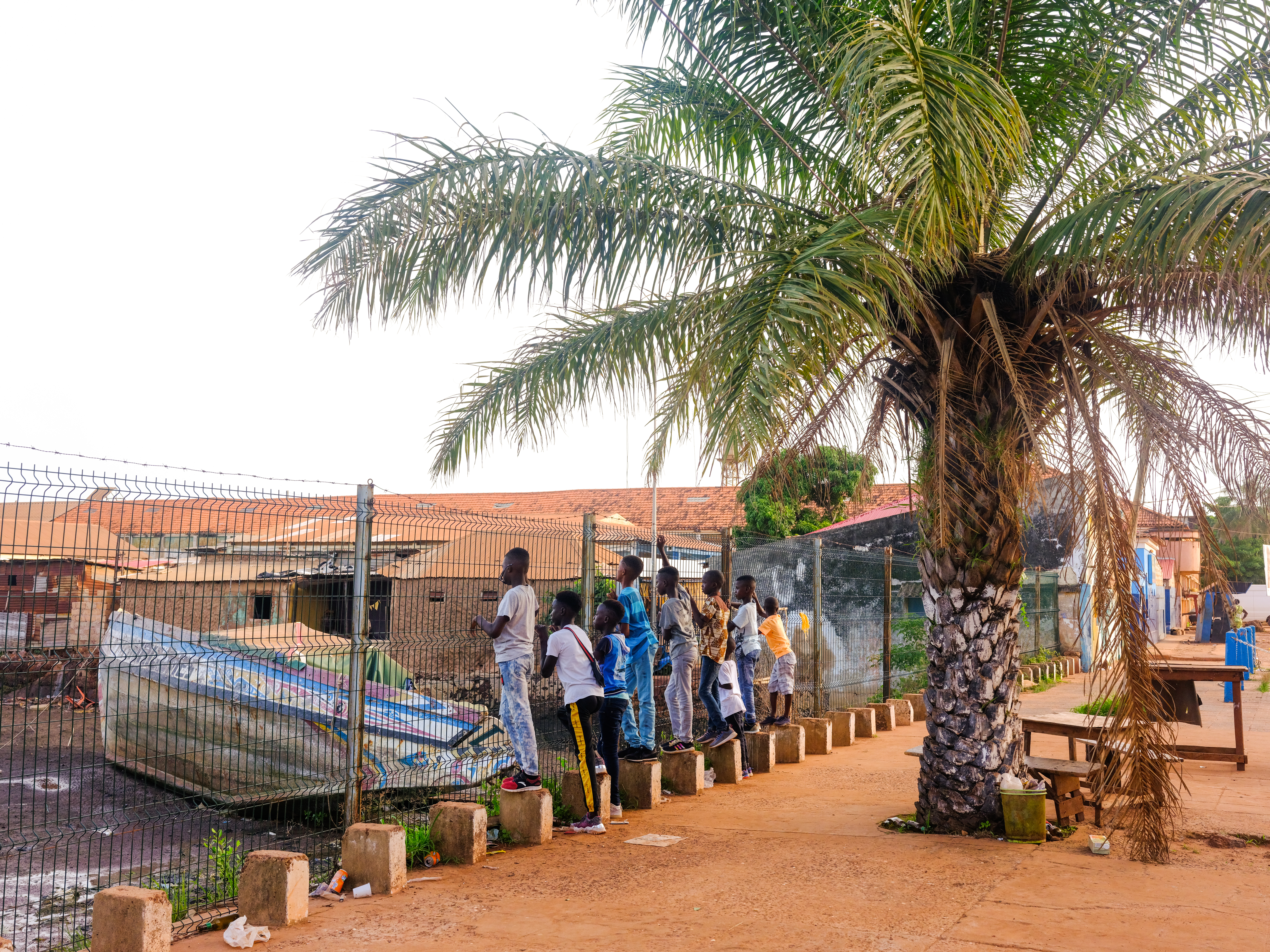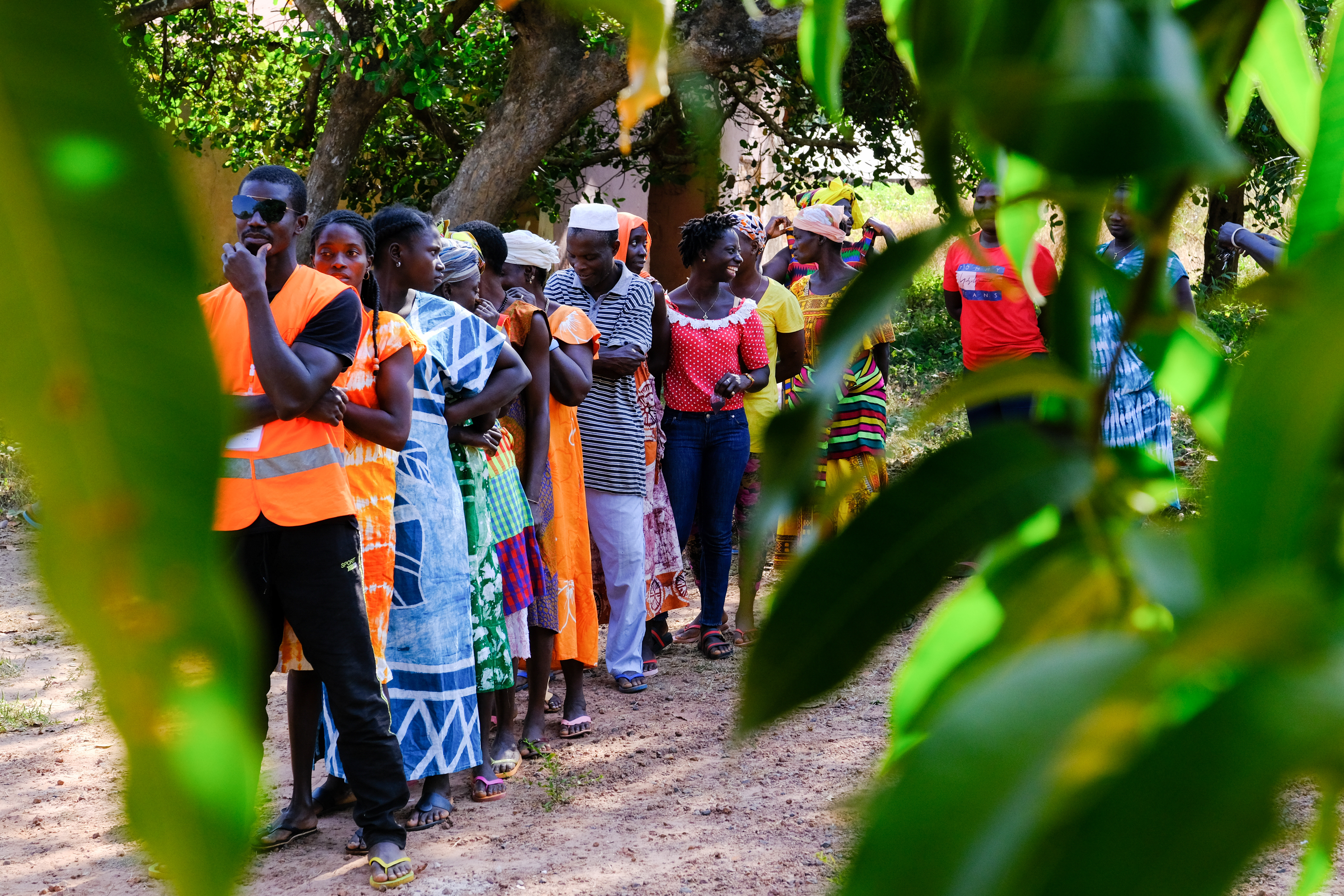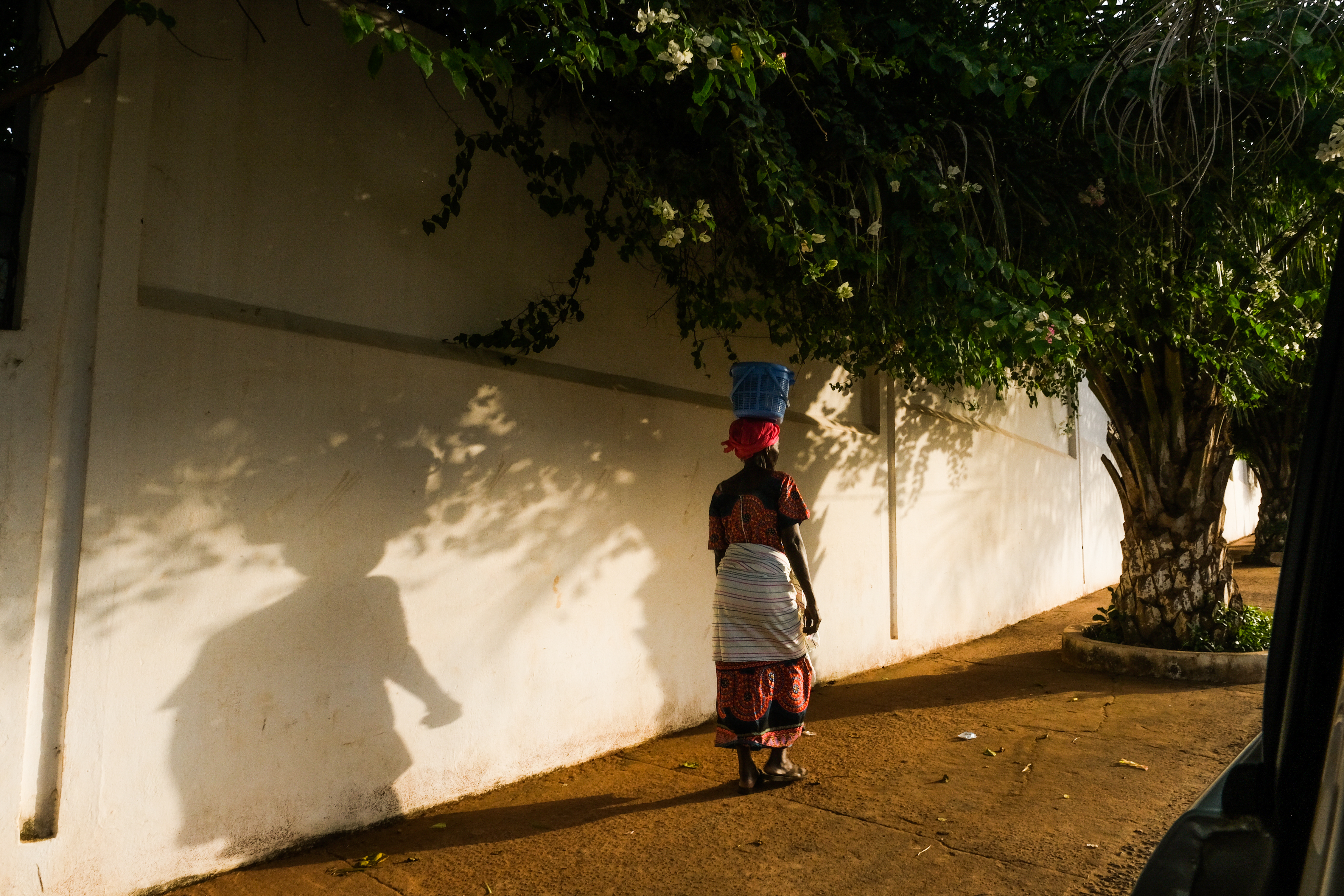Primary research has demonstrated that the Bissau-Guinean diaspora are a strategic resource in the development of the country. They can either contribute directly by providing capital for economic investments or indirectly by utilizing their expertise and networks to drive forward Guinea-Bissau’s agenda at a global scale, how can we improve the fractured relationship between the Diaspora and the State?
Engaging the Bissau-Guinean Diaspora for the Development of the Country
February 9, 2023

Consulting with community services. Photo: Ricci Shryock
The Bissau-Guinean Diaspora has always been on the Accelerator Lab’s radar, due to its importance on the social, political, and especially economic impact of the country. Despite our keen interest to learn and interact more with the Diaspora, our main bottleneck has always been our inability to pinpoint WHERE our Diaspora is located in the world. There are obvious hubs, such as Senegal due to geographical location and historical ties during the 1998 civil war and Portugal due to colonial history and legacies. However, even these distinct hubs with the apparent presence of the Bissau-Guinean Diaspora, there is no concrete data to confirm their overall size with more recent estimates being around 30,570 in Senegal and 28,905 in Portugal¹.
Through an in depth desk research, we found that the Bissau-Guinean Diaspora has either completely disengaged with the country or connects only economically via remittances to family or local small-scale NGOs dedicated to social causes². From our research, lack of trust was a reoccurring issue, so we wanted to understand the answer to the following questions:
- Why are Bissau-Guineans not interacting with governmental services in the Diaspora?
- Why is there a disconnect between the Diaspora and the State?
- Why are people avoiding official government channels when it comes to making economic contributions for the country’s development?

Children looking out into the Port of Bissau. Photo: Ricci Shryock
We proceeded to contact the Ministry of Foreign Affairs, which has a dedicated bureau, General Direction of Communities (DGC), responsible for managing diasporic communities. During the first encounter, we presented our findings through an active discussion to understand their interactions with the Diaspora. The DGC shared with us the “Diaspora Engagement Strategy in National Development”³ document, which outlines the seven key areas of focus listed below:
1. Ensuring the Political and Institutional Coherence of public policies on Migration
2. Strengthen trust between the State and the Diaspora
3. Promote diplomatic action aimed at protecting emigrants
4. Strengthen and improve Diaspora Support Services
5. Promote the Contribution of the Diaspora to the Development of Human Capital
6. Promote Diaspora Investment
7. Support the local development projects promoted by the Diaspora
This was a great starting point to understand what their priority areas were, but also that there is already a dossier of work being done by the Ministry of Foreign Affairs via the DGC.
Futures Thinking Workshop
Our conversation with the General Direction of Communities led to us organizing a Futures Thinking Workshop with representatives of International Organizations representing the Bissau-Guinean Diaspora covering the countries pinned on the map below:

Countries mapped: Angola, Brazil, Cabo Verde, Guinea, Luxembourg, Portugal, Senegal and the United Kingdom.
The aim of the Futures Thinking Workshop was to engage both the DGC and the Diaspora organizations on the future projections of Diaspora integration in the country’s development. During the workshop, we asked those present to focus on the following questions in groups:
- Where they [Diaspora] want to be
- What are the barriers stopping them [Diaspora] from getting to where they want to be
- What are the solutions for getting to where they [Diaspora] want to be
Through this activity, the focus is positively directed to “where we want to see ourselves” as opposed to getting stuck on the bottlenecks, which are easily identifiable.
Below are some bottlenecks and solutions mapped during our workshop:

Bottlenecks and Solutions Mapped during the Futures Thinking Workshop
The outcome of the Futures Thinking Workshop, answered the first question of our exploration in relation to why Bissau-Guineans were not interacting with governmental institutions abroad.
Participants explained that the political instability in the country is the single most significant factor causing a barrier between the Diaspora and governmental institutions abroad. They explained that political instability created insecurity and often projects that were started with local embassies or consulates, collapsed as soon as the Government reshuffled, requiring extra effort, manpower and financial resources to re-start. The participants felt like they could not rely on governmental institutions abroad to deliver on their promises and put their interests at the forefront, comparing the relationship to that of the Cape Verdean Diaspora which is sturdier, more reliable and consistent.
When asked about why the relationship with the Government and the Diaspora is so fractured, participants raised the following points:
“The Government institutions abroad need to be more reliable, so we can trust and work with them.”
“The brain drain in Guinea-Bissau is not in vain, if even highly qualified individuals cannot rely on the Government to support them in investing, who will they help?”
“Organizations such as Filhos e Amigos de Cacheu are our port of call because we know where the funds go, and we see results. At the end of the day, we want to help our family and friends, we cannot rely on instability, we need to move now!”

Community members lining up. Photo: Ricci Shryock
Lessons Learned
- Building trust takes time.
When working with governmental institutions in Guinea-Bissau, the biggest risk is always the insecurity, and constant worry that the staff we are working with, may not be around tomorrow. With that being said, the worries raised by the Diaspora are similar to those we face on the daily basis. Building trust takes time, but often there is not enough time before a reshuffle that often causes frustration and disappointment. Over time, we’ve learnt to play with the cards we’re dealt, start small and build up, create strong bonds, document our efforts to be able to pick up where we left off. In this cycle, it will be no different, we will work with the Diasporic organizations and the Ministry of Foreign Affairs to the best of our ability and hope to execute a few tests to address the rooted concerns.
2. Opportunities arise when you work out loud.
Once we’d completed our desk review, we saw there was a lot of information, but the signals were not so clear. We began to tap into our networks, reaching out to those who had worked with the Diaspora before to understand what was currently being done. Additionally, we used social media to show what we were doing and what we wanted to achieve. This led to us learning about the International Conference of the Diaspora and negotiate the opportunity to conduct a Futures Thinking Workshop the day before the Conference with the Diaspora Organizations who were due to attend. This workshop was essential for the exploration phase of this cycle and will influence our next steps greatly.
3. Mapping Communities creates better relationships.
A bottleneck that became apparent during our first meeting with the General Direction of Communities, Ministry of Foreign Affairs, was that they had put a lot of work into mapping the whereabouts of the Diasporic Organizations and Groups, but they had done nothing to begin a dialogue with them. The GDC explained “we want to bring the diaspora closer and begin to mend that relationship”, however, they had not considered developing activities and initiating dialogues to build the path. Raising this point with the GDC led to them tapping into their networks in the Diaspora to begin to work with them in an outreach capacity for communicating with the Diaspora. This connection will support them in the upcoming elections, in which the GDC will support in communicating and setting up the polling stations.

Local woman walking toward the market. Photo: Ricci Shryock
Next Steps
The Accelerator Lab will work with the UNDP Economic Cluster, which has a range of areas of focus under the umbrella of financial inclusion that target the Bissau-Guinean Diaspora. The exploration conducted by the Accelerator Lab will inform some of these interventions of the Economic Cluster to optimize them in becoming more sustainable through co-creation with the Diaspora.
In addition, the exploration and solution mapping phases of this cycle have demonstrated that the biggest incentive developed by the Ministry of Foreign Affairs for the Diaspora has been the Emigrant Card; therefore, the Lab’s first test will focus on this area. The Lab wants to explore the following hypothesis:
“IF the emigrant card is better marketed, THEN more members of the Diaspora will acquire one and engage with the Ministry of Foreign Affairs.”
It is worth noting that the work of the Lab in the Ministry of Justice and the Cape Verdean company NOSi aiming to develop an e-portal for issuing criminal record certificates and SIGDAJ, will inform our work in this Diaspora Learning Cycle. Understanding the dos and don’ts from both Cape Verdean’s transition into e-governance and laws surrounding e-governance in Guinea-Bissau, means the chances of success are higher when it comes to supporting the Economic Cluster in the financial inclusion interventions which aims to create a portal for the Diaspora. Stay tuned for the next blog of the series.
[1] EUDiF. Diaspora Engagement Mapping: Guinea-Bissau. 2020.
[2] IOM. Diaspora Mapping: Profile of the Gambia, Guinea and Guinea-Bissau Diasporas in Italy. 2019
[3] Ministry of Foreign Affairs & IOM. Estratégia de Envolvimento da Diáspora no Desenvolvimento Nacional. 2021.

 Locations
Locations